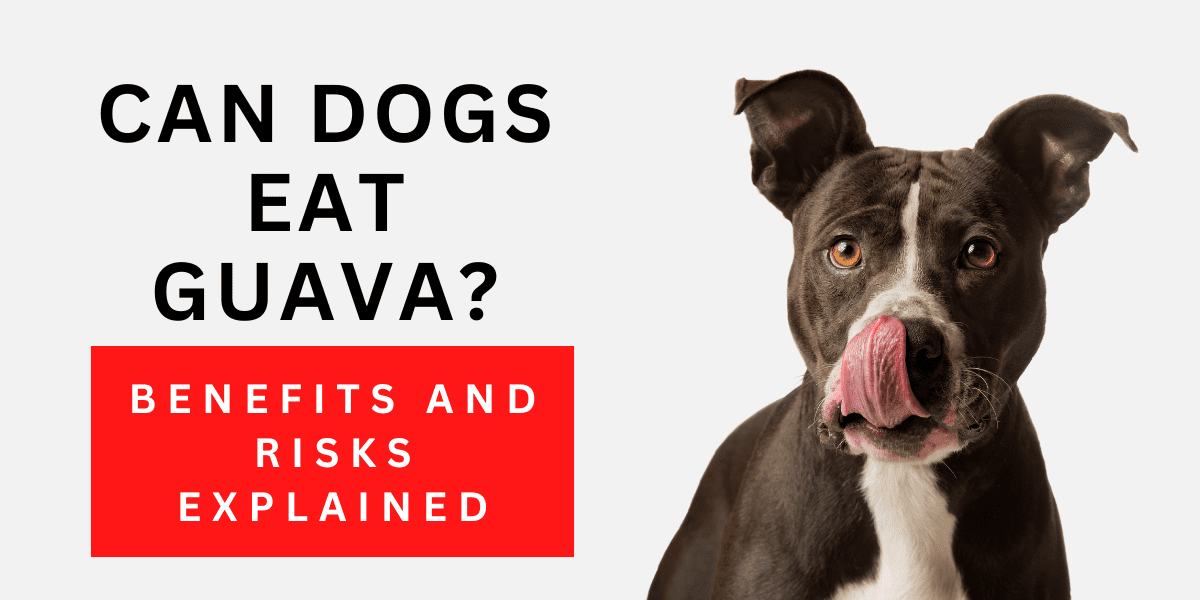As someone who cherishes the wagging tail and the unconditional love of my dog, I’ve found myself pondering, can dogs drink orange juice? Like many pet owners across the United States, I want to ensure that every aspect of my furry friend’s diet contributes to their well-being. The topic of dogs and orange juice is particularly intriguing a result—a tantalizingly sweet human favorite versus the dietary restrictions of our canine companions.
We know that occasionally, sharing a healthy snack with our dogs can be a bonding experience. But when it comes to answering the question, is orange juice safe for dogs, the answer isn’t as straightforward as we might like. While we bask in the vitamin-packed goodness of this citrus drink, it’s crucial to consider the implications it might have on our pets.
Can Dogs Drink Orange Juice? Absolute no: it is not advisable.
- Orange juice is not inherently toxic but isn’t recommended for dogs due to its sugar and citric acid content.
- While oranges carry vitamins beneficial to humans, dogs produce Vitamin C naturally and don’t need supplementation.
- Fruits like blueberries, watermelon, and apples can be safer, healthier alternatives for dogs than orange juice.
- When considering sharing any human food with your dog, moderation and proper preparation are crucial.
- Always consult with a veterinarian before introducing new foods to your dog’s diet.
Understanding the Effects of Orange Juice on Dogs
As a loving dog owner, exploring the canine diet and finding dog-friendly beverages that can contribute to my furry friend’s health is a top priority. However, it’s essential to clarify some misconceptions, particularly around the perceived health benefits of orange juice for dogs. Let’s delve into why this popular human refreshment may not be the best choice for our canine companions.
Why Dogs May Not Need Vitamin C Supplements
It’s often believed that vitamin C is a cornerstone of health, and while this is true for us humans, the situation is quite different for dogs. Canines, unlike us, possess the natural ability to synthesize Vitamin C in their liver, which essentially makes them self-sufficient in this regard. This fascinating aspect of a dog’s physiology nullifies the necessity for vitamin C supplements that one might assume come from orange juice.
The Difference between Dogs’ and Humans’ Nutritional Needs
Drawing parallels between human and canine nutritional needs can lead to dietary mistakes. Although we share our lives with dogs, their dietary requirements are distinctively different. This difference underlines the importance of tailoring our dogs’ diets to their specific needs, which rarely mirror our own. As such, foods and beverages that are beneficial for us, including orange juice, may not always align with what is suitable for a dog’s health.
Risks Associated with High Sugar Content in Orange Juice
Despite the sunny, wholesome image of orange juice, the high sugar content poses a substantial health risk to dogs. Frequent consumption of sugary treats can lead to weight gain and even obesity in dogs, not to mention the potential exacerbation of diabetes. With our canine friends’ best interests at heart, steering clear from orange juice becomes less a question of preference and more a matter of their health and well-being.
While it’s tempting to share every aspect of our lives with our pets, especially dietary habits, it’s critical to remember that dog-friendly diets are specialized. The health benefits of orange juice for dogs are non-existent; thus, seeking alternatives that cater specifically to canine nutrition is the best path to ensure their optimal health.
Can Dogs Drink Orange Juice?
As a pet parent, I’m always considering what’s best for my furry companion, especially when it surrounds their diet. With orange juice being a staple in my breakfast routine, it’s tempting to let my dog have a taste. However, the question remains: can I give my dog orange juice? From what I’ve gathered, it’s not a black-and-white matter.
Despite the appeal of sharing a sip of this refreshing beverage, the sugar and citric acid levels in orange juice are a red flag for dogs’ health. Citrus fruits for dogs can come with a price, particularly those with sensitive systems or carrying extra weight. In these dogs, an upset stomach could be the least of our worries, with the possibility of escalating to more dire health issues.
Some believe that because dogs can handle the actual fruit in minimal quantities, a little orange juice might be okay. Yet, it’s important to remember that this liquid form is more concentrated, which substantially increases the risk of negative reactions. It turns out, our canine friends don’t need this tangy drink to stay healthy or hydrated. So, when they look up at me with those big puppy dog eyes, I know it’s wiser to offer them water or a dog-friendly alternative instead.

If you’re keen on treating your dog with a fruity snack, opt for a small segment of orange, sans the seeds and peel, as a rare treat. Even then, we have to keep a close eye for any adverse effects. All in all, it’s clear that keeping orange juice out of their bowl is the best practice. So next time you’re enjoying a glass of OJ, perhaps pour some water for your pooch instead – they’ll be just as grateful for the refreshment.
Health Benefits of Citrus Fruits for Dogs
As a pet owner, I’m always looking for new ways to ensure my furry friend stays healthy and happy. That’s why exploring the benefits of certain fruits for canines is quite intriguing. Citrus fruits, for instance, seem to hold some potential benefits worth considering for dogs. But how do we balance the health advantages with the risks that come with such acidic treats? Let’s delve into what natural nutrients found in oranges can do for our canine companions.
Natural Nutrients Found in Oranges
Every responsible dog owner knows that their dog’s diet should be well-rounded and nutritionally complete. But sometimes, after an extra-long hike or a particularly taxing day, it feels right to give them a little extra boost. It turns out, an occasional orange segment could be just that — packed with potassium, fiber, and vitamins such as A, B-6, C, and E, it’s a natural treat that supports overall health. Notably, the **health benefits of orange juice for dogs** may not be as significant as once believed, especially considering they’re already on a balanced diet.

Appropriate Fruit Treats for Canines
Even with the potential benefits, citrus is not always a canine crowd-pleaser. That said, there’s no shortage of dog-friendly beverages and treats out there. I’ve found that my dog’s tail wags just as much for blueberries, watermelon, and apples—fruits that are both safe and enjoyable for dogs. These treats, when offered in moderation, can make up part of a balanced and diverse canine diet without the risks associated with toxic fruits like grapes and cherries.
Potential Health Boosts for Active or Stressed Dogs
Dogs, especially those that are highly active or dealing with stress, might need some extra help with their nutrition. While oranges and even some **dog-friendly beverages** could have their place, one must always consider the unique needs of each dog. It’s clear that while orange juice is off the table, giving your dog an orange segment now and then may offer them a welcome vitamin boost, aiding their recovery and resilience.
While we frequently hear about the **health benefits of orange juice for dogs**, I’ve learned that moderation and care in selection are key. Dogs don’t need a lot of extras if they’re already receiving a balanced diet, but for those moments when you feel like sharing a treat, it’s best to stick with whole fruits over juice. And remember, when introducing anything new to your pet’s diet, it’s wise to watch for their reaction and consult with your veterinarian as needed.
Safe Ways to Introduce Oranges Into Your Dog’s Diet
If you’re like me, you want to share the healthiest options with your pup. Finding alternatives to orange juice for dogs can be quite rewarding, and introducing fruit treats into your dog’s diet needs to be done with care. Oranges, when prepared appropriately, can be a healthy addition to your canine’s regimen. So let’s peel back the layers on how we can include this citrus fruit safely.
Preparation of Oranges for Dogs
I learned the importance of proper orange preparation for dogs the fun way – with little slices and playful tosses. Always start by thoroughly peeling the orange and removing any seeds and the rind. These can cause blockages and other digestive problems, which we definitely want to avoid.
Portion Size Based on Dog Breed and Size
Ultimately, the portion size should match your furry friend’s breed and size. For my smaller buddies, a few slices are more than enough, while larger breeds can relish a bit more. Yet, remember, it should fit into their daily calorie intake—balancing treats with their regular food matters.
Understanding Dog’s Individual Dietary Needs and Preferences
Just like us, every dog is unique with its preferences and dietary needs. Some may gobble down orange segments with tail-wagging enthusiasm, while others may turn their noses up. It’s essential to gauge their initial reaction and consult with a vet if your dog has specific health conditions or dietary sensitivities. Keep those fruit treats for canines varied and within 10% of their caloric intake for a happy, healthy pooch!
Conclusion
As pet owners, my role includes safeguarding the health of my furry companion, especially when it comes to their diet. From my previous musings, it’s evident that while oranges can be a nutritious snack for dogs, it’s crucial to dispense them discerningly. I’m mindful that the lure of orange juice isn’t an ideal choice for my dog due to the high amounts of sugar and citric acid, which could complicate their well-being. Instead, my focus lies in exploring alternatives to orange juice for dogs which cater to a canine diet without posing the risks associated with orange juice.
Every dog is unique, and each has its dietary needs that merit individual attention. Consulting a veterinarian is a step I always recommend prior to integrating new items into my dog’s menu. Remember, the objective is not just to share our human treats with our pets, but to ensure that what we offer enhances their health. Dog-friendly beverages and snacks are available that can impart similar advantages, minus the potential downsides of human-oriented products like orange juice.
My experience teaches me that moderation is key, and while an occasional orange segment is a delightful treat, it must be served properly and in fair amounts. Dogs enjoy a variety of fruits that are safe for them, which can complement a balanced diet, reinforcing the joy of sharing life – and snacks – with my devoted companion.
FAQ
Can dogs drink orange juice?
Generally, it’s not recommended for dogs to drink orange juice. Orange juice contains high levels of citric acid and sugars, which may lead to gastrointestinal upset in dogs.
Are there any health benefits of orange juice for dogs?
While oranges can provide vitamins such as Vitamin C, B-6, and A, dogs are capable of producing Vitamin C on their own, and the high sugar content of orange juice outweighs these benefits, making it an unsuitable drink for dogs.
Why might dogs not need Vitamin C supplements?
Dogs’ bodies inherently produce Vitamin C, so they typically do not need it supplemented through their diet like humans do. This means that the Vitamin C in orange juice is unnecessary for dogs.
How do dogs’ and humans’ nutritional needs differ?
Dogs and humans have significantly different nutritional requirements. Dogs need a diet tailored to their specific digestive systems, which generally excludes foods and drinks that are high in sugar and citric acid, like orange juice.
What are the risks associated with the high sugar content in orange juice for dogs?
The high sugar content in orange juice can contribute to obesity in dogs, worsen diabetic conditions, and lead to dental issues. Additionally, it can result in gastrointestinal upset such as vomiting and diarrhea.
Can I give my dog orange juice?
It is best to avoid giving your dog orange juice. Instead, opt for dog-friendly beverages or provide them with water, which is the healthiest hydration choice for dogs.
What are the natural nutrients found in oranges that can benefit dogs?
Whole oranges can offer nutrients like potassium, fiber, and vitamins A, B-6, C, and E, but these are generally already included in a well-balanced commercial dog food diet.
What are appropriate fruit treats for canines?
Dog-safe fruit treats include blueberries, watermelon, and apples. Always ensure that any treats given are suitable for dogs and offered in moderation as part of a balanced diet.
How can oranges potentially boost health for active or stressed dogs?
For active or stressed dogs, oranges might support their natural vitamin C production. However, this should only be considered in moderation and as part of a varied diet.
How should oranges be prepared for dogs?
Oranges given to dogs should be peeled and have all seeds removed to prevent choking and digestive issues. Only the fleshy part of the fruit should be offered.
What should be the portion size of oranges based on dog breed and size?
Small dogs can have a quarter to half an orange, while larger breeds might handle up to a whole orange. This should be based on their overall diet and daily calorie intake.
How can I understand my dog’s individual dietary needs and preferences when introducing new foods?
It’s important to introduce any new food, including oranges, gradually into your dog’s diet and monitor their reaction. For any special dietary considerations, consult with your veterinarian.
Are there alternatives to orange juice for dogs?
Instead of orange juice, consider providing your dog with plenty of fresh water or occasionally small portions of dog-friendly fruits to ensure they stay hydrated without the risks associated with orange juice.






